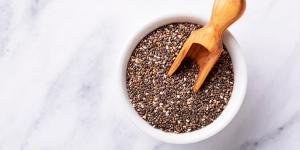Is Watermelon Good for Weight Loss?


When it comes to weight loss, finding foods that are both satisfying and nutritious can be a challenge. One fruit that stands out in this regard is watermelon. With its high water content, low calorie count, and rich nutrient profile, watermelon has become a favorite among those looking to shed a few pounds without sacrificing flavor. This refreshing summer fruit not only helps keep you hydrated but also provides essential vitamins and antioxidants that support overall health.
This article by oneHOWto tackles the question: Does watermelon contribute to weight gain? We'll explore its calorie count and uncover the many health benefits it offers.
Does watermelon make you fat?
Watermelon is a popular choice for weight management due to its incredibly low-calorie content. In fact, over 90% of watermelon is water, making it ideal for keeping you feeling full and hydrated, especially during hot weather.
Beyond hydration, watermelon offers valuable nutrients. It's a good source of vitamin C, an antioxidant that supports immune function, and contains beta-carotene and lycopene, which are antioxidants linked to potential health benefits. Additionally, the 0.4 grams of fiber in each 100 grams can help you feel fuller for longer, reducing the urge to overeat.
So, ditch the myth that watermelon makes you fat! Its low-calorie content and high water content make it a perfect choice for a healthy diet.
How many calories does watermelon have?
One cup of diced or balled watermelon contains around 46 calories. This translates to roughly 30 calories per 100 grams of watermelon.

Is watermelon fattening at night?
Traditionally, some believed evening meals, regardless of content, caused weight gain due to reduced calorie burning during sleep. However, research suggests the total calorie intake throughout the day matters more than timing.
While timing can influence digestion, the key is a balanced and moderate dinner. Eating earlier in the evening allows for more time to digest before sleep. This applies to any food, not just watermelon.
Most nutritionists agree that watermelon, with its high water content and low calorie count, won't lead to weight gain or stomach upset at night. However, it can affect blood sugar levels.
Watermelon has a moderate glycemic index, meaning it can cause a rise in blood sugar. While not inherently bad, consuming it earlier in the day might be a better choice for optimal blood sugar control. However, a small amount as an afternoon pre-workout snack might be beneficial.
Pairing watermelon with protein sources like yogurt or cheese can help regulate blood sugar by slowing down its absorption.
Even though watermelon can be enjoyed as part of a balanced diet, even at night, be mindful of portion control. Overeating at night, regardless of the food, can negatively impact sleep. High intake can lead to spikes in insulin, glucose, and triglycerides, potentially affecting sleep quality, especially for those with a more sedentary lifestyle. Active individuals who exercise in the afternoon might have better tolerance for nighttime snacks.

What are health benefits of eating watermelon?
Watermelon is not only a delicious and refreshing fruit, but it also offers several health benefits due to its rich nutrient content. Here are some of the key health benefits of eating watermelon:
- Hydration: watermelon is composed of about 90% water, making it an excellent choice for staying hydrated, especially during hot weather.
- Vitamins and minerals: watermelon is a good source of vitamins A, C, and B6, as well as potassium and magnesium. These nutrients are essential for various bodily functions, including immune health, skin health, and muscle function.
- Antioxidant properties: watermelon is rich in lycopene, a powerful antioxidant that gives the fruit its red color. Lycopene has been linked to reduced risk of certain types of cancer, particularly prostate cancer, and may also support heart health.
- Vitamin C: this antioxidant helps protect cells from damage by free radicals, supports the immune system, and promotes healthy skin.
- Heart health: the lycopene in watermelon can help lower cholesterol and blood pressure, while citrulline, an amino acid found in watermelon, may improve blood flow and reduce blood pressure. Watermelon also contains potassium helps maintain proper electrolyte balance, supports heart function, and may help lower blood pressure.
- Muscle soreness relief: some studies suggest that citrulline in watermelon may help reduce muscle soreness and improve exercise performance.
- Improves eye health: watermelon contains beta-carotene, which the body converts to vitamin A. This vitamin is crucial for eye health and may help prevent macular degeneration.
This article is merely informative, oneHOWTO does not have the authority to prescribe any medical treatments or create a diagnosis. We invite you to visit your doctor if you have any type of condition or pain.
If you want to read similar articles to Is Watermelon Good for Weight Loss?, we recommend you visit our Healthy living category.






